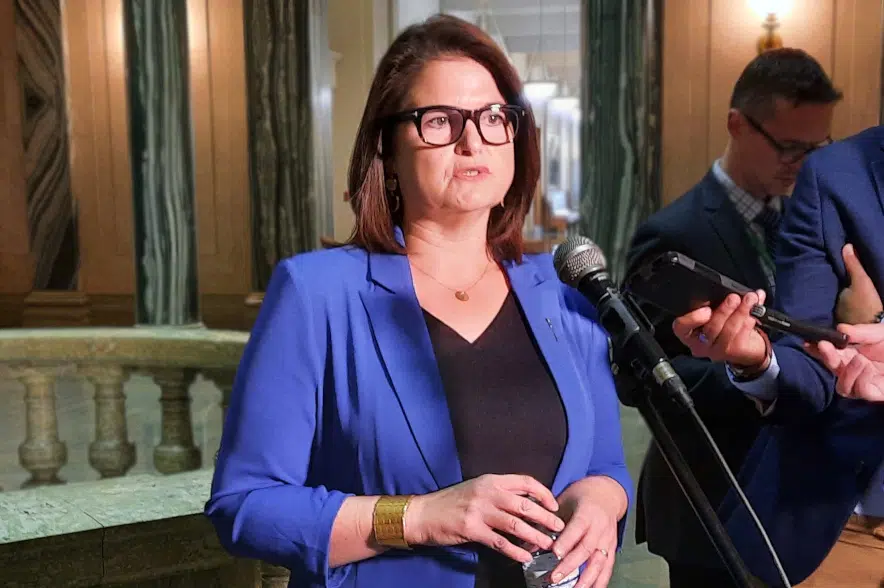Though the provincial government had hoped to get going right away on the work of passing its pronoun and school policies, things started slowly on Tuesday.
The controversial new policies require schools notify parents when a young student wishes to change the name or pronouns they use in school, and allows parents more leeway over their children’s participation in sex ed. lessons.
A court injunction temporarily blocked the new policies as a lawsuit makes its way through the courts, but Premier Scott Moe said his government plans to push ahead with the policies as legislation by way of the Charter’s notwithstanding clause.
Hundreds rallied in Regina to oppose the measures Tuesday, as MLAs returned early to try and pass the measures.
The Sask. NDP didn’t give leave for government to waive the notice period for the bill, meaning it won’t be introduced until Thursday. That will also be the first opportunity for the opposition and public to review the proposed legislation.
When asked why her party didn’t waive the notice period, NDP Leader Carla Beck said it was because she hadn’t yet seen the bill – though she also said her party hadn’t asked for a briefing on the bill either.
“When the government is suggesting that they’re going to invoke the notwithstanding clause to – clearly put – upend human rights (and) charter rights, I think it’s incumbent on the official opposition to ensure that that bill has full scrutiny,” said Beck.
Because the Sask. Party government has a large majority, Beck said the government will be able to ram through the legislation if it wants. She said there are a number of options available to the NDP, but declined to explain her plans.
“We will continue to gather and consult with the public broadly, and we’ll fulfill our role as the official opposition to provide scrutiny,” said Beck.
“There are some levers that the official opposition has, and the government has the majority and has shown itself willing to use the levers as its disposal.”
NDP MLAs tried to raise a few different issues in the assembly Tuesday, including Saskatchewan’s struggling health-care system and the rising cost of living. Beck said those are things people really want answers on, but the government kept its eyes on the pronoun and school policies.
Moe continued to defend the policies and forthcoming law on Tuesday, saying his government is just saying what he said it would do by using all the tools available to make sure the policies are implemented.
Despite previously avoiding the question, on Tuesday the premier explained why he believes the pronoun policy does not violate children’s rights, as some experts and advocates have claimed.
“What we’re talking about (is) when a school divisions or a school will actually recognize a decision that the child has made – so not talking about the ability for a child to make a decision. This is about when those types of decisions will actually be recognized within the school,” said Moe.
The premier said not recognizing a person’s decision isn’t the same as taking away their ability to make a decision at all.
Moe maintained that the school policies are not politically motiviated, and that the majority of the province is supportive of them.
The details
Government House Leader Jeremy Harrison shared more details on Tuesday about how the policies could become law over the next two weeks.
The bill will be introduced on Thursday, and he said the government is offering the NDP twice the typical amount of debate time on this bill – 40 hours instead of 20 – “to make sure that we can fully canvass the issues and give them full opportunity to debate the bill.”
Harrison said he believes the assembly will be able to move through the bill in the two weeks and still give the opposition those extra hours.
Harrison said he would like to sit on Friday and Saturday this week in addition to the normal Tuesday, Wednesday and Thursday sittings. And Harrison said he would like to sit from Monday through Sunday next week, if necessary.
Those additional sitting days would need to be agreed to by the opposition.











